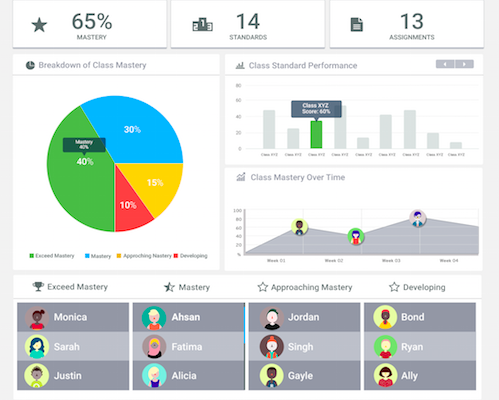How to Practice Ethical School Leadership

As a principal, you must choose to be fair in all your dealings and practice ethical leadership. While pretty much everyone agrees that it’s important to live according to what’s right and to avoid acting in a way that’s wrong, not everyone always agrees on the what’s right or what’s wrong in any given situation. That’s why you should develop a code of ethics to guide you along the way. A code of ethics is personal and different for everyone. It determines an individual’s response to a particular situation and also accounts for the varied responses exhibited by different individuals in the same situation.
An individual code of ethics comes into play in everyday situations that principals experience, such as when an influential parent asks for special favors for his child, while dealing with an impudent student or an impertinent remark, while dealing with teachers or administrative colleagues, or at any point while performing the daily duties of the job. All actions and responses are a function of a personal code of ethics, which is the foundation for differences in principals’ style of dealing with teachers, students, and school-related situations. A clear code of ethics will help you negotiate difficult times during the life of your career. It allows you to decipher the right thing to do based on your current perspective and to take responsibility for and stand by your decisions.
Another idea to be realized in the process of abiding by your code of ethics is to make quick and prudent decisions. Principals should not delay ethically correct decisions for long periods before putting them into practice. If your code of ethics is strong, you should be able to make decisions on the spot and have the conviction to bear the consequences. Too much pondering or hesitation takes the impact out of even the soundest ethical decisions.
Ultimately, the way you respond to what you believe is right and wrong provides insight into your code of ethics. And that’s why a personal code of ethics is not a rigorous, formulated code. You can approximate and set guidelines for yourself based on what you think is right and depend on these guidelines to solve dilemmas and complex educational situations. Individual codes of ethics are not formal codes laid out by organizations and institutions to be obligatorily adhered to by their members. They are intangible moral guidelines that individuals appropriate on their own.
Let’s test your ability to lead ethically. In the scenario below, the principal is faced with an ethical dilemma and he fails horribly. At the end, you will be asked to let us know how you would have handled the situation. Reflect on this question, using your thoughts to shape your own practice.
Scenario: Mr. Fisher had been one of the most prominent and creative teachers at Rosston Elementary for over a decade. He had a devoted following of students and was renowned county-wide for taking “problem cases” under his wing and getting them hooked on learning. His methods were unorthodox and involved closer attention and more one-on-one sessions than was the norm, but there was no question that they worked.
Now, however, a student had come to the principal, Mr. Allen, with the story that Mr. Fisher had met her one evening near her house, and had touched her inappropriately. The student, Gretchen, was a known liar and a petty thief and had been suspended twice already this year.
Mr. Allen called Mr. Fisher into his office and presented the allegations. Mr. Fisher acknowledged that he’d met Gretchen near her house one evening. He said she’d called him in distress, saying her father had beaten her and she needed to talk. They’d talked for nearly an hour, sitting in his car. Mr. Fisher admitted that he’d given Gretchen a hug, but strenuously denied that there was any inappropriate behavior.
Mr. Allen knew he had to deal with the situation impartially. However, his gut feeling was that Mr. Fisher was in the right and that Gretchen was taking advantage of him. Losing Mr. Fisher would be a calamity for the school, but a scandal that wasn’t dealt with correctly would be even more damaging.
As an ethical leader, how would you have handled this situation?






